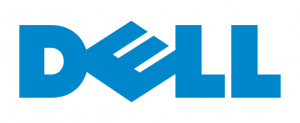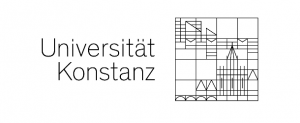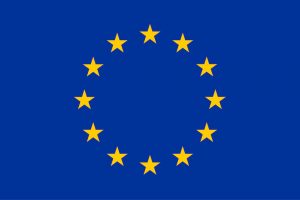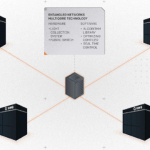Quantum News Briefs January 11: Dell CTO, “Do not miss quantum computing wave in 2023; Atom Computing wraps up 2022 & looks to 2023; Exploring the thermodynamics of quantum computing + MORE

Quantum News Briefs January 11: Dell CTO, “Do not miss quantum computing wave in 2023; Atom Computing wraps up 2022 & looks to 2023; Exploring the thermodynamics of quantum computing + MORE
*****
Dell CTO says “Do not miss quantum computing wave in 2023”

Nancy Liu, editor of SDXCentral recently interviewed Dell Technologies Global CTO John Roese who argued that CIOs should take action on quantum computing in 2023, otherwise “you will miss this technology wave.” Quantum News Briefs summarizes the interview below.
Reese warned, “It’s not okay to just be aware anymore, there are certain things that you actually have to act on,” he told SDxCentral. This year, organizations should invest in quantum talent, simulations, and security.
Roese noted industrial quantum computing use cases started to emerge two years ago, including battery development, material science, drug discovery, and seismic research. “We have hundreds of examples where people have done the early work to figure out how they would apply quantum mathematics to solve some really hard problems that would make specific industries better.”
Additionally, quantum computing tools are available for users to explore the technology and start to learn the necessary programming languages and logic.
To this end, Dell released a hybrid classical-quantum computing package that offers a quantum emulation platform and access to IonQ’s quantum computers that can enable both on-premise and cloud-based quantum acceleration last November.
That’s why he recommends organizations build a team or identify a point person for quantum computing implementation. “It turns out that 2023 is the year that for the first time, most enterprises are going to be able to start to deploy quantum-shaped protocols,” Roese said. To read the complete interview in SDX Central, click here.
*****
Atom Computing wraps up 2022 and looks ahead to 2023
 Atom Computing’s CEO Rob Hays recently wrote a blog post following up on his 2022 predictions for quantum computing tech. Quantum News Briefs summarizes his six predictions and his comments on what did happen.
Atom Computing’s CEO Rob Hays recently wrote a blog post following up on his 2022 predictions for quantum computing tech. Quantum News Briefs summarizes his six predictions and his comments on what did happen.
1) Newer Quantum Computing Modalities Would Achieve Eye-opening Breakthroughs in 2022:
Hays believe s2023 will be a banner year for demonstrating the scalability of neural atom-based technology, which is one of the value-props that is attracting so much attention.
2) Increased Attention on NISQ Use-Cases at Various Scales: I didn’t think the hardware would quite get there in 2022, but application developers did indeed deliver. Quantum South partnered with D-Wave to study airplane cargo loading. Japan-based Qunasys proposed a hybrid quantum-classical algorithm for chemistry modeling and more.
3) Leading Cloud Service Providers Would Double Down on Quantum Computing: This might be the hardest prediction to accurately judge the results of because much of what the cloud service providers do is shrouded in secrecy for years until they are ready to unveil new products and services. Furthermore, the underlying infrastructure that supports their AI-driven services is often proprietary and never fully disclosed publicly.
4) Investments in Quantum Would Continue to Break Records: The overall public and private markets took a macro-economic downturn in 2022 with the S&P500 down more than 19 percent in 2022 and the nascent publicly-traded quantum computing stocks down even further. It’s becoming clear that, in the current environment, public markets are not as accepting of pre-profit companies without predictable revenue growth. Despite the public market turmoil, venture capital investments continued in quantum computing start-ups in 2022, including a $60M Series B by Atom Computing.
5) Diversity and Inclusion Would Be a Bigger Focus in Quantum Information Science: I predicted we would see more cooperation in attracting talent to the ecosystem and career development support for women and minorities. However, for 2023 we can collectively do much better to attract, retain, and promote diverse talent if we work together among competitors and co-travellers to cooperate on supporting diversity in the QIS industry.
6) Regional Quantum Centers of Excellence Would Enable Tighter Collaboration: I predicted that collaborations would emerge among universities, government research labs, and private companies to provide environments of innovation in their regions to gain an advantage over other regions in the quantum computing race. We are seeing quantum ecosystems emerge and/or strengthen across the country. The National Science Foundation and other government agencies have been instrumental in the effort to build regional quantum computing hubs that enable researchers from academia, industry, and national labs and other federal entities to connect and collaborate. Click here to read Hays’ extensive review of 2022 and forecasts for 2023.
*****
Exploring the thermodynamics of quantum computing
 Quantum computing’s basic computational units—quantum bits or “qubits”—are based on highly-sensitive units, some of them individual atoms, and heat can be a crucial interference factor. Quantum News Briefs summarizes research reported in Phys.org drawing attention to the thermodynamic processes of a quantum system.
Quantum computing’s basic computational units—quantum bits or “qubits”—are based on highly-sensitive units, some of them individual atoms, and heat can be a crucial interference factor. Quantum News Briefs summarizes research reported in Phys.org drawing attention to the thermodynamic processes of a quantum system.
In order to retrieve the information of a qubit, its quantum state must be destroyed. The heat released in the process can interfere with the sensitive quantum system. The quantum computer’s own heat generation could consequently become a problem, suspect physicists Wolfgang Belzig (University of Konstanz), Clemens Winkelmann (Néel Institute, Grenoble) and Jukka Pekola (Aalto University, Helsinki). These researchers have now documented the heat generated by superconducting quantum systems. To do so, they developed a method that can measure and display the temperature curve to one millionth of a second in accuracy throughout the process of reading one qubit.
Until now, research on quantum computing has focused on the basics of getting these high-performance computers to work: Much research mainly involves the coupling of quantum bits and identifying which material systems are optimal for qubits. Little consideration has been given to heat generation.
The researchers want to draw attention to the thermodynamic processes of a quantum system. “Our message to the quantum computing world is: Be careful, and watch out for heat generation. We can even measure the exact amount,” Winkelmann adds.
The measurement method was developed for superconducting quantum systems. These systems are based on superconducting circuits that use “Josephson junctions” as a central electronic element. Click here to read more about the research and its implications.
*****
EU funds Qu-Pilot initiative with £16.7m to upgrade micro, nano, and quantum technology infrastructures
 The European Union has granted a €19m (£16.7m) Specific Grant agreement (SGA) funding to upgrade the existing European micro, nano, and quantum technology infrastructures and respond to a growing demand of pilot fabrication services by quantum technology companies. Quantum News Briefs summarizes the announcement from Business Leader UK.
The European Union has granted a €19m (£16.7m) Specific Grant agreement (SGA) funding to upgrade the existing European micro, nano, and quantum technology infrastructures and respond to a growing demand of pilot fabrication services by quantum technology companies. Quantum News Briefs summarizes the announcement from Business Leader UK.
The initiative includes 24 member organisations from nine European countries, and it is led by VTT Technical Research Centre of Finland. The new initiative, Qu-Pilot, will facilitate this development by offering companies a direct path to design, develop and validate their hardware products and processes on a pilot scale. This, in turn, will accelerate the commercialisation of these products.
Quantum technology is one of the key development areas of the European Union. To further enhance and expedite the commercialisation of quantum technology, it is important that European companies have a faster lab-to-market path with optimal technology and product development capabilities. Upgrading the existing micro, nano, and quantum technology infrastructures in Europe will support this goal.
The European consortium, led by VTT, involves 24 organisations, including both RTO’s and private companies from nine countries. The role of private companies is to be the first use cases of the services, which will also help aligning the upgrade with the needs of companies.
Related: IQT NORDICS announced for Copenhagen, Denmark June 6-8, 2023 in partnership with the Danish quantum community and several other Nordic organizations from Finland and Sweden
VTT’s Research Manager Pekka Pursula, said: “VTT is privileged to lead such a significant project, which will improve European competitiveness. This project is a natural continuation of the microelectronics and quantum technology development that VTT and Finland have done and achieved over the decades. It positions us to work with our European partners to make Quantum technology a European success story.” Click here to read BusinessInsider UK article in-entirety.
*****
Sandra K. Helsel, Ph.D. has been researching and reporting on frontier technologies since 1990. She has her Ph.D. from the University of Arizona.



















